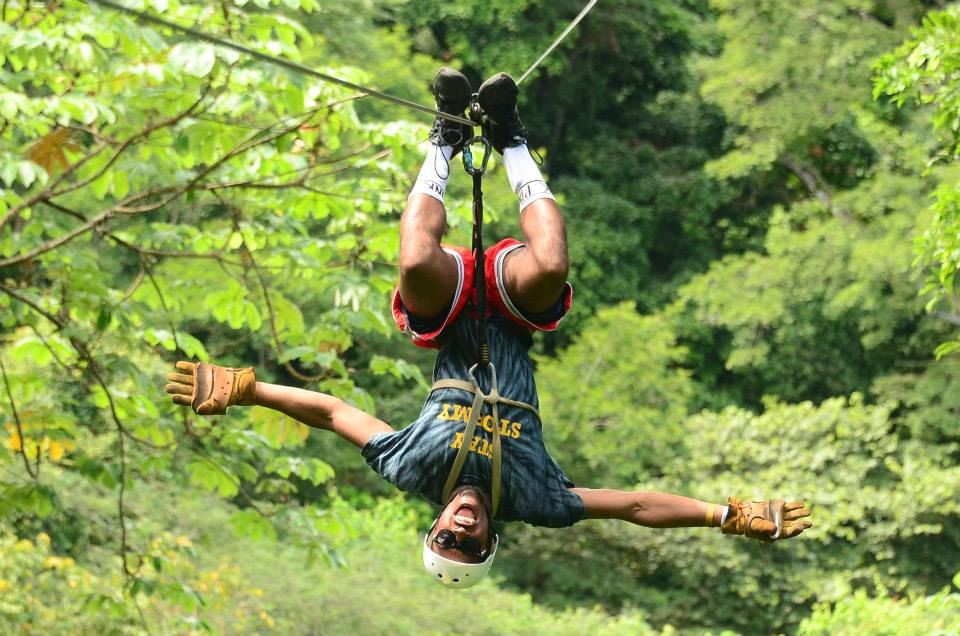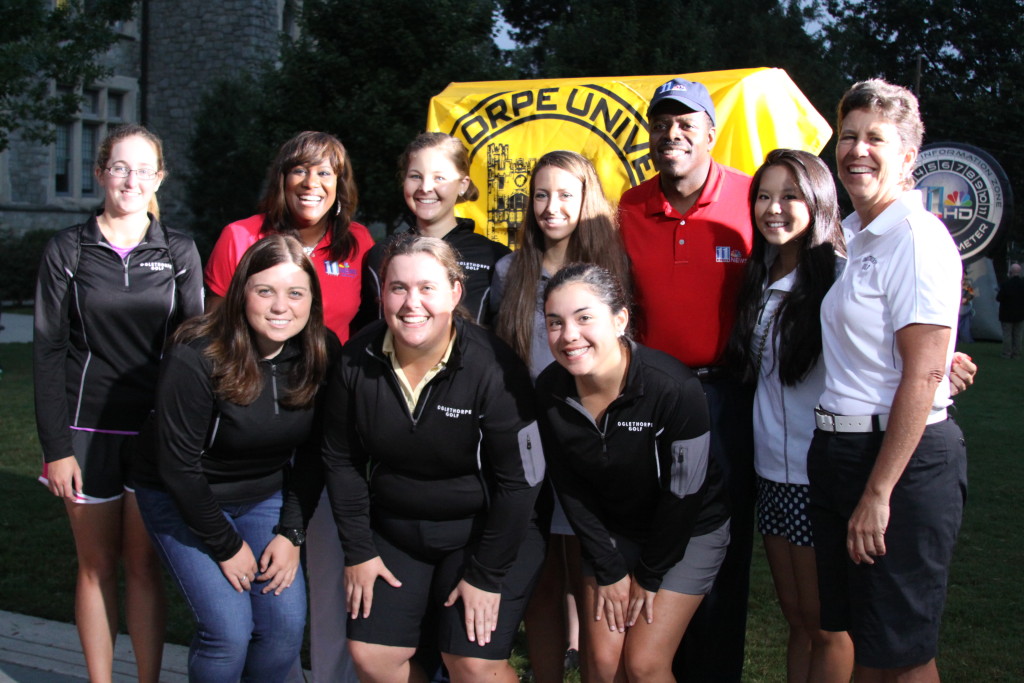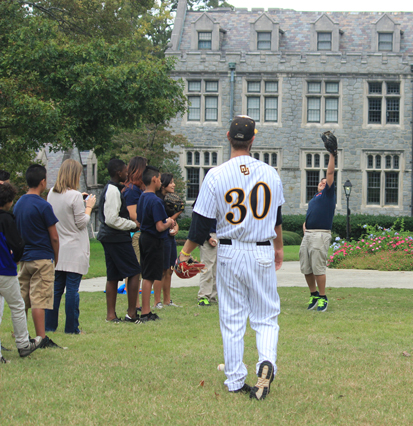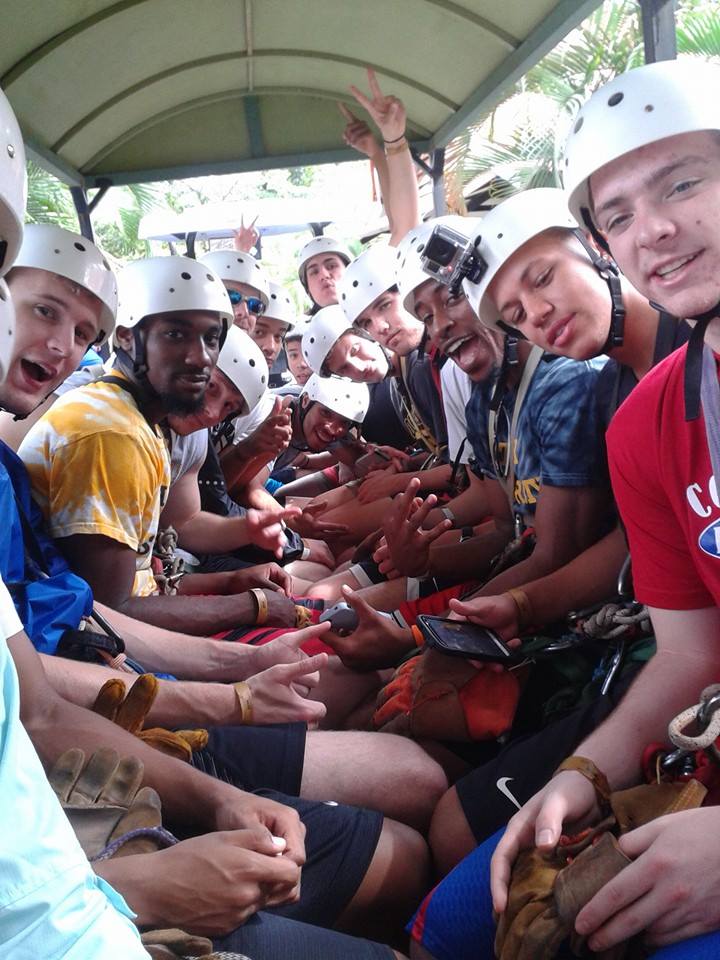 “When you hear the title “athletics coach,” what comes to mind? For many, the term conjures imagery of a sharply-focused leader marking lineups, creating plays, and leading locker room pep talks. Though that may be a part of their job, the role of the athletics coach (especially at the collegiate level) extends far beyond the locker room, and even beyond sport.”
“When you hear the title “athletics coach,” what comes to mind? For many, the term conjures imagery of a sharply-focused leader marking lineups, creating plays, and leading locker room pep talks. Though that may be a part of their job, the role of the athletics coach (especially at the collegiate level) extends far beyond the locker room, and even beyond sport.”
Cindy Vaios, assistant to the athletic director, has coached at Oglethorpe almost seven years; spending most of her time at OU as head coach of women’s golf. She says that a coach is just as much responsible for the student’s athlete’s physical and mental well-being as is their athletic success. Among others, she lists their roles as entering the realm of mentoring, fundraising, recruiting – even housekeeping and being a social media expert.
“I think that for some people. the first perception is that you’re just out playing that sport with the [athletes],” remarks Vaios. “But on the collegiate level, good coaching is really part of the [students’] overall experience. We’re just as much interested in how they’re doing in the classroom and in their future after college as we are in their commitment to the team.”

The women’s golf team turned out (very) early to show their school spirit during Atlanta NBC station 11 Alive’s live morning show broadcast on the Oglethorpe campus.
Becky Hall, Oglethorpe’s athletic director, agrees and pushes her coaches to take an active role in mentoring and being a resource for their athletes in all aspects of their college experience.
“At a Division III school it is imperative that we teach our scholar-athletes how to be well-rounded and good ambassadors of the university in all that they do,” says Hall. “They are not only students, but athletes, leaders on this campus, and my staff should be preparing them for such.”
“Part of this is by being available to them at a moment’s notice,” continues Hall. “Coaches are ‘always on’ in the lives of their athletes. It’s about making sure that we are teaching them life lessons through sport—lessons that include, commitment, dedication, dealing with adversity, communication, teamwork, integrity, character, etc. Coaches’ roles are so much more detailed than just recruiter and coach. [They] quite possibly spend less time coaching nowadays, and more time managing their team’s academic, athletic, and social responsibilities. It is a great responsibility, and one that our coaches do not take lightly. We appreciate that these families entrust their 18 to 22-year-olds to us, and we take that charge quite seriously.”

The baseball team teaches skills to kids from nearby Path Academy, as they wait their turn to view the Oglethorpe University Museum of Art exhibition “Stealing Base: Cuba at Bat”.
Coaches also are occupied with the logistics that come with fielding a team of college players—those that have less to do with sport-specific training. These could include transportation issues, maintaining safety on the road, and helping athletes to field class conflicts due to team travel or personal issues affecting their participation in an athletics program.
“We try to keep an open communication with professors so that students understand their responsibilities, and that, especially for academic reasons, if they need to step away from the program, they do so at an appropriate time,” says Vaios. “I’ve had a student athlete struggling in the classroom, and after taking them aside, we worked with the Student Success Center and their professor to get it right. I’ve pulled athletes from playing until they’re back on track by going to class, getting good grades, and showing that they were progressing. Today, academic study tables are a requirement for freshmen, and the Academic Success Center keeps and eye on them as well.”
To help improve the overall student-athlete experience at Oglethorpe, the athletics department has introduced a new initiative called GA2MES, (pronounced “Games”). GA2MES, an acronym for global/national experience, academic success, athletic success, mentoring, engagement and sportsmanship, will incorporate all six of these goals to foster growth and involvement between athletics and other part of campus. Eight of OU’s 16 teams will take part in the initiative during its first year; baseball, women’s basketball, men’s and women’s lacrosse, men’s and women’s tennis, and volleyball. Starting next year, all 16 teams will participate.
As part of GA2MES, the teams will participate in a global and/or national experience, with the squads having the opportunity for out-of- region competitions, international travel, and community service. These trips will put a focus on multicultural experiences, which will give the student-athletes the opportunity to learn and grow.
Over fall break, the OU men’s basketball team embarked on a Basketball team’s trip to Costa Rica, which included two exhibition games, a community service project at a children’s center, and a variety of cultural experiences and adventures, like zip-lining through the rain forest.
“We grew closer as a team, and I think came home a better team,” said Head Men’s Basketball Coach Philip Ponder. “More importantly, the trip hopefully gave the players a different perspective on things, and opened their eyes to the fact that there is a great big world out there, where people have way more similarities than they do differences.
A strong emphasis on engagement will give teams the opportunity to participate in meaningful community service projects together, both abroad and at home. OU’s men’s tennis will work with the Atlanta Tennis Youth teaching fundamentals of the sport during the off season. Women’s tennis will volunteer with PATH Academy, an elementary school adjacent to campus. Baseball will devote time to the Northside Youth Organization Christopher League.
“Our students are servant-leaders, and participate in many service projects that put them in situations outside of their comfort zone,” says Becky Hall. “As we try to teach compassion, understanding, empathy, we feel the engagement piece is critical in learning those characteristics.”
The GA2MES initiative also relies on faculty participation. All teams will choose a faculty mentor who will serve for the entire year, providing support to the team both academically and on game day. In addition, the mentors will actively participate in team functions and potentially joining the team on select road trips.
So far, women’s basketball has chosen Dr. Michael Rulison, professor of physics, to serve as their faculty mentor; baseball has selected Dr. Lynn Guhde, associate professor of management; and, Dr. Kathleen Peters, lecturer in Core Studies, is mentoring the men’s soccer team.
“I believe as the initiative continues to gain understanding and momentum, it will demonstrate all that is special and unique about Division III athletics,” says Hall. “One of the pieces of this that excites me most is our march to academic excellence and the mentoring piece. With those getting stronger, and with athletics connecting with faculty, some of the negative stereotypes [about student-athletes] will start to come down. We do not have a bunch of ‘dumb jocks’ that are only here for their sport. Quite to the contrary, we have extremely bright students who are leaders. Faculty involvement helps provide positive relationships between students and faculty, staff and students, and my staff and faculty. We are all ‘one team,’ so to speak. That is a win/win in my book.”

